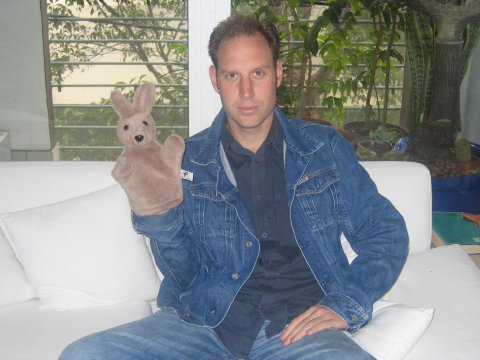Heath Ledger

It started on the street. Some guy I passed was talking on his hands-free about something that had "just happened". Then in the lift up to level 12 another couple of people were chatting in those hushed serious-newsreader voices. "He had a role as the Joker, so he wasn't hard up for work," one of them said. Then another person in the lift got a call on their mobile. "No way," they said, then "hang on a second I'm in a lift." And the office, when I walked in, was like an ants' nest that had been poked with a stick.
"Is there some big news," I asked.
"Heath Ledger is dead." they said.
Truth is, I'm not one for these "news items". Sorry to sound like a cold fish, but to me, the death of Heath Ledger is just as tragic as the death of some guy down the street who didn't get a mention in the paper. I liked his acting alright - that moment in Two Hands when he locks gazes with Rose Byrne's character was pure magic.
But I hadn't counted on the ramifications this event had on our magazine. Some of our copy had to disappear, new articles about Heath had to be written. Other famous people had to be contacted to get quotes about how tragic it was and headlines had to be thought up. And all the while I'm conscious that this is far from the thin end of the wedge - there are people in the media who must have even more vulture-like jobs, calling family members, for example. I'm not sure why people provide quotes for these stories, why we write them down, or why people read them. It all feels a bit wrong.
Usually we write about soap-opera characters who have died or whatever and in a way people in the spotlight are just soap-opera characters to us - how can we know them any more deeply? It's hard to draw any human conclusion from an event (and indeed a life) so refracted and distorted by the media, but if I can it's that here's a guy who from the outside had it all. Be thankful for the things you love and that love you I say.


4 Comments:
I've had that vulture-like job, calling the family. One of the reasons I'm no longer full-time in the newsroom. It's horrible.
The reason a newspaper might write about a private individual's death is because they died in some particularly tragic way: crime victim, car accident. And the justification I've heard for calling the family is to flesh out the details of the person's life, so that the article is more than just the morbid details, but adds some dimension, because this was a real person, not a statistic. And suprisingly, most times the family was very cooperative.
But I never felt that justified our intrusion into private grief.
Must say, it surprises me that the people were so cooperative. If something like that happened to me I think I'd tell the reporter(s) where to go!
I don't see too many movies and I don't think I ever saw HL in anything, but it's certainly too bad. Can't imagine getting or making a call like that.
b
Well, I was always as gentle as I could possibly be and left the door wide open for them to say no. People seemed to like an opportunity to talk about the good things about their loved one.
I did a story on a murder victim once who was a prostitute and a drug addict. I interviewed her mother, who talked about how hard her daughter was trying to clean up her life. She later sent me a thank you note for how kindly I treated her daughter in the article, like a real person. I still have that, somewhere.
Post a Comment
<< Home